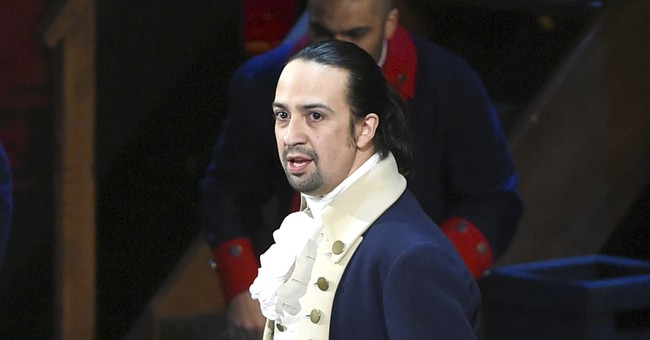
Source: Photo by Evan Agostini/Invision/AP
Lin-Manuel Miranda’s wildly successful Broadway musical Hamilton would embark on its fourth tour this fall had the virus not canceled it. Instead, a video version will begin airing on Disney+. It helps to appreciate the magnitude of Miranda's accomplishment to know that T. S. Eliot, often called the greatest Christian poet of the 20th century, met moderate success at infusing theater with verse. Eliot considered Shakespeare to be the greatest poet in English because he integrated the two so well.
The hero, Alexander Hamilton was a signer of the Constitution and was a founding father with faults. He cheated on his wife who forgave him, as Miranda points out. And he betrayed his country with his founding of a national bank. Hamilton was well-read, so he had to know that the Bank of England was founded and given a monopoly on currency in exchange for financing war against France. Before governments could borrow unlimited amounts from banks, they had to tax the people to pay for soldiers and weapons, so wars were much shorter.
And Hamilton had to know about the South Sea Bubble in England and the Mississippi Bubble in Paris. In both cases, the banks established by the governments of England and France issued tsunamis of new currency that resulted in rocketing prices in stock markets, housing, carriages, and horses. Both bubbles burst in 1720, leaving the two countries much poorer. Richard Cantillon made his fortune in the Paris mania by short selling stocks and insisting on payment in gold rather than the worthless paper money. Cantillon explained the failings of the Paris bank in his Essai Sur La Nature Du Commerce En Général, published in French in 1755. Hamilton may not have read Cantillon, but he quoted from Postalthwayte's Universal Dictionary, which reprinted much of Cantillon's book.
